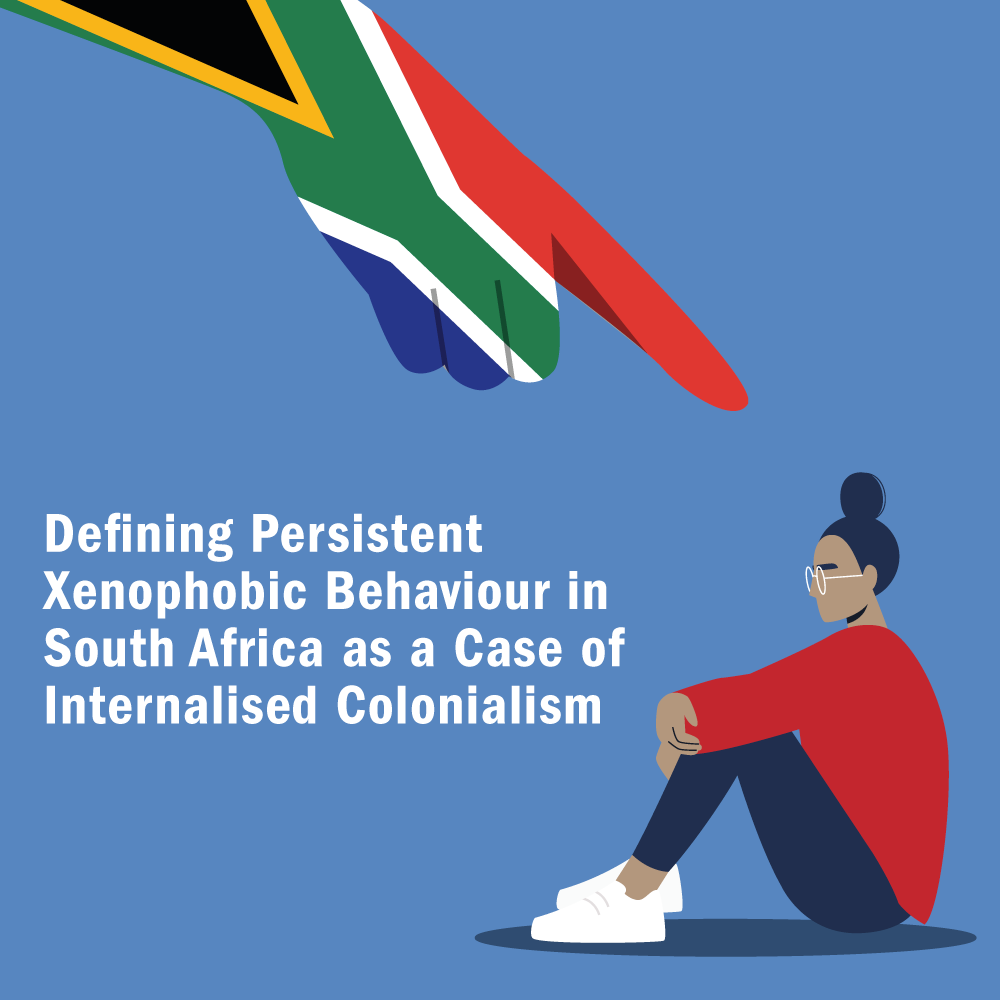Defining persistent xenophobic behaviour in South Africa as a case of internalised colonialism
Main Article Content
Abstract
South Africa has a history of systemic racial segregation. The ramifications of this history within contemporary South Africa, that extend beyond the Black South African demographic, are yet to be fully discussed. The idea emerging is that the xenophobic culture prevalent in South Africa is a result of internalised colonialism. In discussing internalised colonialism, the notion of citizenship needs to be analysed in order to legitimise who belongs to a state and who has access to a state? The de jure factors that fortified South Africa’s apartheid regime indicate that dismantling internalised colonialism and its projection unto other Black demographics in South Africa requires legal fortification. The idea is that de facto and de jure factors can exist within a cycle that enables the deconstruction of xenophobic behaviour in South Africa. In discussing this behaviour, the larger global landscape must be considered as being part of a web that perpetuates new forms of exclusion. Emerging is an exposure of the vicious cycle that exists between previously subjugated groupings extending maltreatment towards other groupings within their spheres of influence. The idea is that a socio-totem pole exists in which there will always be an ‘other’ for the historically ‘othered’.

